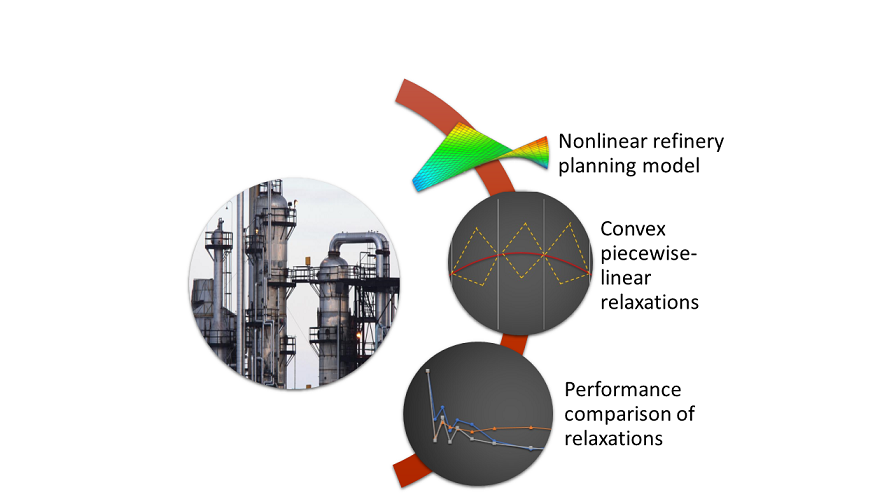Refinery planning optimization is a challenging problem as regards handling the nonconvex bilinearity mainly due to pooling operations in processes such as crude oil distillation and product blending. This work investigates the performance of several representative piecewise-linear (or piecewise-affine) relaxation schemes (referred to as McCormick, bm, nf5, nf6t, and de (which is a new approach proposed based on eigenvector decomposition) that mainly give rise to mixed-integer optimization programs to convexify a bilinear term using predetermined univariate partitioning for instances of uniform and non-uniform partition sizes. Computational results show that applying these schemes give improved relaxation tightness than only applying convex and concave envelopes as estimators. Uniform partition sizes typically perform better in terms of relaxation solution quality and convergence behavior. It is also seen that there is a limit on the number of partitions that contributes to relaxation tightness, which does not necessarily correspond to a larger number of partitions, while a direct relation between relaxation size and tightness does not always hold for non-uniform partition sizes.

